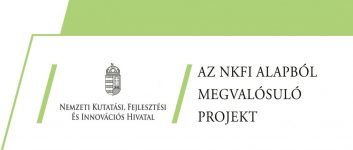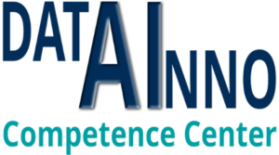Software And Data Intensive Services
Introduction To The Project
PROJECT DETAILS
Call title: 2019-1.3.1-KK
Establishment of Competence Centers – Development of Research Infrastructure
Beneficiary: Eötvös Loránd University
Project title: “Software and Data-Intensive Services”
Reference number: 2019-1.3.1-KK-2019-00011
Grant budget: 1.825.702.983 Ft
Grant intensity :100%
Duration: The project is implemented from February 1, 2020, to January 31, 2024, funded by the National Research, Development and Innovation Office (NKFI Alap).
Project leader, appointed Competence Center director: dr. Kovács Attila
CONTACT INFORMATION
dr. Kovács Attila – Project Leader, Appointed Competence Center Director – Faculty of Informatics, Eötvös Loránd University, Professor
![]()
Szépréti Zita – Project Manager – Dean’s Office, Faculty of Informatics, Eötvös Loránd University
![]()
Motivation And Background
In today’s world, the role of innovation capabilities in relation to capital and labor has significantly increased globally as a key factor in economic performance and competitiveness. The emergence of information and communication technologies (software-intensive solutions, cloud computing, software security, data protection, data science, artificial intelligence) plays a crucial role in almost every industry and service sector, ranging from healthcare to direct manufacturing industries and the financial sector. Information technology is not just one of the rapidly evolving fields of science and industry but also one of the main driving forces behind global economic changes. The progressively changing technological demands and conditions, along with the rapid increase in the number of software-intensive systems, require solutions in which the software industry and the underlying research and development knowledge base can flexibly integrate the technological elements of development megatrends, such as handling large amounts of data or artificial intelligence. The Faculty of Informatics at Eötvös Loránd University has been successfully implementing such collaboration models for a long time (e.g., EIT Digital Budapest CLC, Ericsson Software Technology Laboratory, industrial departments: Department of Data Science, Department of Artificial Intelligence, Mediso Laboratory, SAP Applications Laboratory, Innovation Laboratory, etc.). The Competence Center will be established at two locations: Budapest and Szombathely.
Activities Of The Competence Center
The Center’s activities have two main directions:
Development of research infrastructure (establishment of research laboratories) at both locations.
Research and development activities tailored to local/regional industrial needs: Development of new procedures, tested prototypes, marketable products, services, and technological processes to enhance market efficiency and competitiveness in the following areas:
- Digital transformation of financial services, development and application of data science methods in digital banking services and the Fintech field.
- Development of signal and image processing, as well as data processing methods, for diagnostic imaging devices. Creation of the computational background for new medical procedures through the integration and analysis of large healthcare databases.
- Support for the implementation of Industry 4.0-based manufacturing processes and optimization of manufacturing technology.
- Launching of I4.0 and Fintech master’s programs, initiation of dual-track computer science master’s programs, and integration of research and development activities into professional training.
The Professional Objectives Of The Project
E-GROUP ICT SOFTWARE INFORMATIKAI ZRT:
In collaboration with ELTE, E-GROUP aims to create new and innovative software technology products in the fields of Fintech, Healthtech, and Govtech, contributing to digital transformation. In the SmartData&Analytics domain, we plan to focus on three major priority areas (Medtech, Fintech, Govtech) to enhance deep learning competence on the DLx platform and establish the foundation for regional digital transformation. Collecting and organizing data from various silos with heterogeneous structures and facing data privacy challenges are of paramount importance. Cryptography is expected to undergo significant changes in the next few years to address quantum technology challenges. We will explore solutions that are resistant to both traditional and quantum computers, considering algorithmic shifts and their practical applications. There are ongoing efforts to enhance security levels while maintaining user-friendliness in user authentication solutions. One new direction involves linking user control of mobile phones or other personal devices (possession) with geolocation data. Authentic geolocation is not only relevant to user authentication but also to logistics for the protection of truck tachographs, autonomous cars/taxis control, and the security of “car sharing” services like MOL Limo/BuBi, Lime, etc. The banking sector has specific requirements for “face-to-face” customer identification and analysis of biometric data. Besides fingerprints and facial images, other data are being experimented with, among which electrocardiography (EKG) represents one of the most promising directions.
MEDISO MEDICAL IMAGING SYSTEMS KFT:
In the field of cardiac evaluations, we focus on the automatic evaluation of two different areas: perfusion and blood pool, using so-called flow-based methods where a high degree of automation is considered innovative. In addition to cardiac evaluations, brain examinations are another important area where numerous diseases can be diagnosed and analyzed using SPECT imaging modality and automated algorithms. The planned developments are of significant importance for low-dose CT or SPECT or PET scans performed with a smaller amount of radioactive tracer injection, enabling patients to receive lower radiation doses while still achieving accurate diagnosis through AI-based methods. There are several areas where innovative methods based on AI are aimed at improving image quality, analysis, and enabling more accurate diagnosis, thereby offering competitive products.
DATA-PRESS INFORMATIKAI KFT:
One of the tasks of Data-Press Kft. within the established competence center is to develop methods that enable time-series analysis of data-intensive monitoring needs, particularly for pressure variations and other transient characteristics occurring in flow-critical machine components. The project involves ELTE researchers creating a research and development infrastructure and an analytical center based on failsafe data collection technologies, capable of performing data-intensive analyses and determining parameters measurable only through dynamic methods. Data-Press Kft. experts provide all the necessary data acquisition units, measurement techniques, knowledge about the challenges of computed measurements with transient phenomena, and a significant amount of real data from actual machine equipment for research purposes. Furthermore, Data-Press Kft. undertakes to design and manufacture the necessary Industry 4.0, semi-industrial equipment set to supply real data for ELTE researchers. The Szombathely campus of ELTE will process thousands of sensor data per minute from various industrial facilities. Dynamic data-intensive signal processing supports continuous aggregation and transformation of incoming data by the servers of the competence center, enabling faster evaluation after preprocessing, regardless of the analysis techniques chosen by researchers.
The project with the identification number 2019-1.3.1-KK-2019-00011 was implemented with the support of the National Research, Development, and Innovation Fund of the Ministry of Innovation and Technology, under the funding of the 2019-1.3.1-KK grant program.

